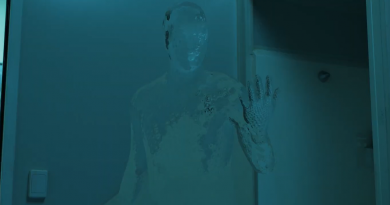What Does the Box Office Returns for ‘Godzilla vs. Kong’ Mean?
If you hadn’t heard, Godzilla Vs. Kong (henceforth GvK) had a fairly stable box-office weekend, recouping close to $50m domestic and just shy of $200m overseas. So naturally we are back to stable, movie-going experiences in the time of COVID, yes?
Maybe. There are a few things to note here.
The first is that movie theaters were not in the dire straits we originally projected – as soon as theaters opened again and we could meet, people would resume getting back to the theater-going experience. I think this is partially true, especially in Los Angeles and New York (which recently reopened and saw a resurgence of box office gets for Tenet). It is safe to believe that, although Georgia had opened their theaters and across the country a lot of areas allowed for theater gatherings, the bulk of movie-going and box office returns come from New York and California (specifically Los Angeles and Southern California). If NY and LA had opened theaters during the pandemic (which, at the time, was close to an impossibility), then we would have seen a decline, but still stable, theater-going experience.
However, this would have created a new narrative. In the pre-pandemic days, I think a $50 domestic would have been seen as a major disappointment. If we did not have the utter stoppage of filmgoing during the pandemic and Mulan pulled in $50m domestic, I think most speculators and analysts would be crying the death of the theater-going experience. I understand context matters, and it is nice to see people flocking to the theaters again, but I also feel this may be a little premature. I think the numbers are stable.
Further, if this becomes the new norm, it could stop the total box office nuclear arms race that we had been facing recently, where the escalation of box office numbers dramatically increased the pressure for every movie to utterly destroy the opening weekend. During the 60’s, the growing cost of productions of movies nearly collapsed the industry but made room for smaller, smarter films to be made and for a new economic reality of movies to be set. The pandemic, in some ways, cut the legs out of the movie industry at almost a perfect time, as budgets were skyrocketing and more and more studios started to fall by the wayside.
I also think the box office returns for GvK are good, but not exactly a measure of how effective theater-going over streaming is. It’s strange to think that most people would rather pay a one-time fee for a movie when they can pay the same fee for HBO Max and get significantly more value out of it, even if it is just for a month. In some cases, it proves that, at least in New York and Los Angeles, most people would prefer to go out to see something on a big screen in a room with a bunch of people than to watch something with visual splendor on their television set. And in New York and Los Angeles, that’s great. I applaud it. I don’t want the theater-going experience to die. But I can’t help thinking that only two major cities are doing the brunt work of keeping this type of viewing experience alive and possibly casting some sort of illusion over the filmmakers. With that said, theater-going is still the best way for movies themselves to recoup the profits, and the people who really suffer are the small theaters (most of which are, again, only in rural areas that AMC and Edwards or Regal don’t want to go to or are in (you guessed it) New York or Los Angeles (or some hipster cities like Santa Cruz)).
Still, it’s a good sign that movie theaters will limp along for another decade or two.
If it seems like I’m torn about the results of this box office weekend, I am. Part of me is happy, on a functional and artistic level, that movie theaters are still around and here to stay. It is still the best way to watch a movie, it is still an exciting experience, and it’s a hell of a lot of fun. At the same time, the state of the movie theater industry is in such shambles because the very people whose product we view destroyed it – the coming of digital projectors, 3D films to capitalize on investment returns, forcing smaller theaters to give up more of ticket shares – and yet they are trying to both have their cake with ticket returns and yet destroy the very baker that makes the cake (to mix my metaphors).
I’ve linked a Hollywood Reporter article that details how questionable it was for Warner’s to simultaneously release their major films in theaters and on HBO Max. I don’t know how much the HBO Max releases will actually take away from the theatrical releases (or re-watches in theaters) and while I would normally think it was bad, I think there are still too many variables. If anything, even though theaters are 95% open in the US (only at 50% capacity), it means that Warner’s gets not only the ticket revenue but also revenue from the streaming service. A better economist than me will be able to crunch the numbers to see what would bring more profit in, and I’d be interested to see the numbers. However, it also means that people who would normally not be able to see the movie now have a chance to view it.
Back to the big question – what does GvK’s “big” box office haul mean? That the studio made a profit on the movie (hopefully) and that people in New York and Los Angeles wanted to see big monsters fight on a big screen (I guess).
Notes:
Hollywood Reporter article on GvK




